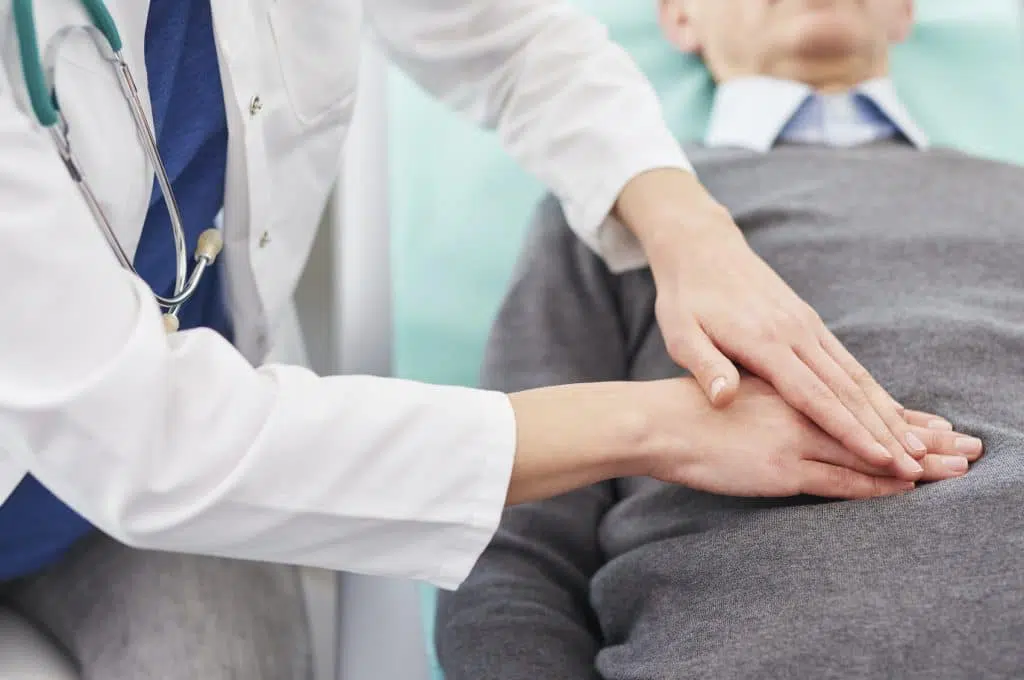Call Now!
Torrance Office: +1 (424) 360-0155

If you are seeing an odd bulge in some part of your abdomen, you may be looking at a common health problem known as a hernia. While not all cases call for hernia repair, the condition may cause discomfort or even, in certain situations, pose an urgent medical danger.
The good news is that hernias can be treated with a high degree of success. Our Torrance hernia doctors at Rolling Hills Medical are industry leaders in comprehensive hernia treatment using nonsurgical and surgical methods.
Let's examine this troublesome condition, from its causes and symptoms to treatment options and recovery expectations.
The term "hernia" describes the bulging of an organ or tissue through another tissue that normally encompasses it and holds it in place. This condition usually involves the structures of the upper or lower abdomen, including the groin. Some of the various types of hernias in adults include:
Some hernias are present from birth, while others develop over time due to muscle weakness, excessive strain, surgical complications, or underlying health conditions.

Inguinal, femoral, and umbilical hernias are all known to be caused by strain. Obesity, pregnancy, and age-related muscle weakness can all contribute to the creation of a hernia.
Hernias can also occur due to weakness in tissues that have been operated on. This post-surgical issue is known as an incisional hernia.
Hernia symptoms can vary widely depending on the type, location, and severity of the problem. Most commonly, you may see or feel an obvious bulge in your abdomen or groin. This bulge may or may not be accompanied by pain, especially when you exert the muscles in that area.
You might also get the feeling that your bowels are either full or blocked. The tissues in a hernia bulge can often be pushed back into place. A hiatal hernia won't show a bulge, but it may cause reflux, heartburn, difficulty swallowing, and other digestive distress.
While most hernias are more annoying than dangerous, occasionally a hernia may become incarcerated, with the tissue becoming stuck in the weak area so it cannot recede. If the blood flow is cut off, the hernia is said to be strangulated. This is an emergency condition that may cause fever, vomiting, nausea, intense pain, and discoloration at the hernia site.
Mild hernia symptoms may not require hernia treatment beyond watching and waiting, the wearing of supportive devices, and lifestyle adjustments to minimize strain. In some cases of hiatal hernia, physical manipulation can pull the stomach down and out of the hiatus.
But if a hernia develops into a significant or urgent concern, we may recommend hernia treatment using surgical intervention. Hernia surgery consists of two main approaches:
If hernia treatment involves surgery, what you can expect during recovery from hernia surgery depends in part of what kind of procedure you've had.
An open surgery generally requires a brief hospital stay as well as a two-week follow-up appointment. You'll need to avoid lifting anything that puts more than 15 pounds of strain on your body. Laparoscopic surgery patients can usually go home the same day as the procedure.
Be aware, however, that this form of hernia surgery may make you more prone to complications or a recurrence of your hernia. Complications from hernia surgery may include chronic pain and infection.
Rolling Hills Medical can provide you with the diagnosis, information, hernia treatment and post-treatment care you need to get your condition firmly under control. Call our Torrance CA clinic today at 424-250-8699 to schedule an initial consultation.